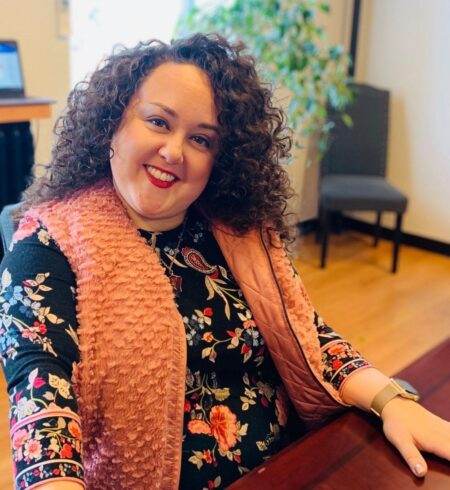Hear stories of hope and recovery from those with real experience. Or submit your own.
Sunny's Story

The Sun Will Come Out Tomorrow
Growing up, from under the age of ten into my teens, I understood what suicide was from my parents, who told me about family friends experiencing suicide loss. I only knew that someone felt so much pain that they no longer wanted to be alive, and I felt deeply for them. Looking back, I’m grateful for how my parents handled these conversations. There was no fear, anger, or blame—only empathy for whatever the people who died were feeling at the time.
As a child, I experienced a range of emotions around the topic, but two messages stuck with me: things could get better, and people could heal if they sought help. These ideas would become crucial later in my life.
Otherwise, like many growing up in the ’80s, ’90s, and even the 2000s, mental health wasn’t something we talked about openly. As an impressionable young woman, I remember being confused by how the media portrayed Britney Spears. It shaped how I thought about my own mental health: hide it from anyone who could judge you. That was the message I took away.
From a young age, the arts were a huge part of my life. I started performing at five and landed several leads in Annie starting at nine. The show’s themes stayed with me—and would prove meaningful again later. By 19, I was living and working full-time in New York City as an actress, fully immersed in the Broadway community. At 22, I was cast in the National Tour of Annie with the original creative team, a full-circle moment.
In my twenties, I transitioned into youth and family programming, expanding beyond performance to help young people and families experience the magic of Broadway. It was fulfilling and life-changing.
But at the same time, many close friends struggled deeply, often in crisis. Some friendships were lost because we didn’t have the language or support to ask for help. Many of us were processing trauma without a diagnosis—myself included. I asked for help, but many doctors dismissed my struggles, chalking them up to living in the city, my career choice, or simply “life being hard.”
Deep down, I knew life didn’t have to feel so painful. But I couldn’t find a resource or doctor who could truly help. Insurance would cover a therapist for 12 weeks—then I had to start over with someone new. I was misdiagnosed, mis-medicated, and misunderstood. Over time, I began to wonder: if life would always feel this difficult, was it worth living?
Even while fighting the darkness and walking through what felt like a never-ending tunnel, I was what would be considered “high-functioning.” My mental health challenges never stopped me from going to school, working, or thriving in a competitive career. But they absolutely interfered with my ability to feel at peace.
My deep love of the arts kept me going, and I will always be grateful for that.
My parents were and continue to be my number one protective factor. Their constant support, encouragement, and help searching for better doctors sustained me. Even so, it wasn’t until my late twenties—when I left New York and returned to Vermont—that a ray of light appeared. By then, the toll on my physical health was obvious. I had gone from an energetic, thriving person to someone who barely recognized herself.
Returning home allowed me to rebuild. Slowly, I found practitioners who saw me as a whole person rather than a set of symptoms. I learned about trauma and how it rewires the brain and body. I realized that healing wasn’t just possible—it was a real experience I could have. And most importantly, I discovered that reaching out, being honest about my struggles, and accepting help were strengths, not weaknesses.
Today, mental health is a major part of my life’s work. I’m passionate about building spaces where people feel safe talking about their experiences without judgment. I believe everyone deserves the chance to heal, to be understood, and to live a life that feels worth living.
Looking back, I often think about Annie and its message: the sun’ll come out tomorrow. It sounds simple, yet it’s true. Even in my darkest times, when I felt like the tunnel was never-ending, I could see a light very far away and it was that hope—that tomorrow might be better—that kept me going. And now, with better support, more understanding, and a strong community, I know that it’s true. The sun always rises again.
Sunny has a consulting agency at the intersection of mental health literacy, non-clinical psychology, advocacy, and communications. Her work focuses on many areas, including suicide prevention, ensuring that individuals and communities have the tools they need to learn more, reducing stigma, and helping people ask for help.
 Dial 988
Dial 988
 text VT to 741741
text VT to 741741

